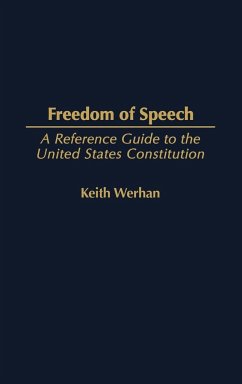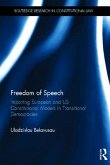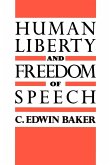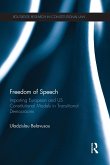Although freedom of speech is regarded as a bedrock principle of American constitutionalism, the Supreme Court did not recognize it as a fundamental right worthy of strong constitutional protection until the middle of the 20th century. This work focuses on the core doctrines that constitute free speech jurisprudence. It provides a historical evolution of the doctrine and examines the key Supreme Court decisions affecting it. This volume gives readers an analytical framework for understanding free speech jurisprudence. It takes a fresh approach to free speech methodology by breaking it into two accessible parts: substantive doctrines and procedural doctrines. This work includes informative background chapters on the history and theory of free expression. It also looks at the Supreme Court's struggle with subversive advocacy and its importance in protecting free speech.
Hinweis: Dieser Artikel kann nur an eine deutsche Lieferadresse ausgeliefert werden.
Hinweis: Dieser Artikel kann nur an eine deutsche Lieferadresse ausgeliefert werden.








